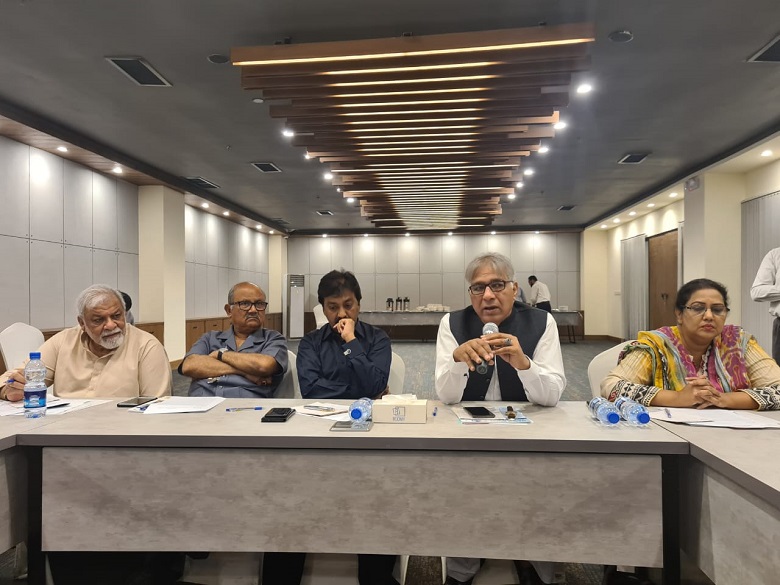ISLAMABAD, Pakistan: The civil society attended a consultative meeting in Islamabad on Tuesday organized by the Centre for Social Justice (CSJ) to address discrimination and marginalization on the basis of religion and gender, prepare recommendations to incorporate in electoral reforms as the coalition government has promised and the Election Commission has been seeking recommendation from civil society.
Over 35 participants from different organizations included; National Commission for Justice and Peace, National Commission for Human Rights, Association of Women for Awareness and Motivation, Cecil and Iris Chaudhary Foundation, National Commission for Minorities, National Commission on the Rights of Child, Pakistan Partnership Initiative, Peace and Development Foundation, Society for Relief and Development, Outreach Assistance to Humanity, Lawyers, religious and minority political leaders, journalists, human rights activists and councilors attended the consultation.

The representation of minorities in the elected houses has been subject of great discussion and as well as experiments in past fifty years. In the 70s the representatives of minorities were chosen by respective houses in the province as well as the national assembly. In the 80s the separate electorate, was introduced, hence, religious communities could not vote beyond their religious identity which created apartheid in the political system. This was done away with in 2002 after a long struggle for joint electorate.
Since 2002 the proportional representation has been instituted through the constitution and political parties nominate minority representatives on the reserved seats as well as for women.
Other guests included; Bishop Samuel Azariah, Albert David, Former MNA Asiya Nasir, Dr. Charles Amjad Ali, Sebastian Justine, Dr. Rubina Feroze Bhatti, Ashraf Mull and others strongly opposed any mode of electorate which will deepen the religious divide or create identity crises as Pakistani for the minorities.
They also added that any scheme of making minority constituencies on the basis of religion will be detrimental to the politics and interest of minorities.
The Executive Director of CSJ Peter Jacob said that the current mode of electorate has been criticized because the successive parliaments became ineffective. Therefore the representatives occupying reserved seat should be assessed using contextual parameters.
After an elaborate discussion, the participants recommended that the scope of technocrats should be increased and substantially (30 percent of total) which will help increase the value of reserved seats.
The enhanced scope of representation of technocrats in the provincial and in national assembly shall enable incorporation of needed expertise of the non-elected in the cabinets, etc. from the different walks of life for important portfolios.
The moot also recommended that the reserved seats including the minority should be filled through intra party elections to make their role more representative and effective.
